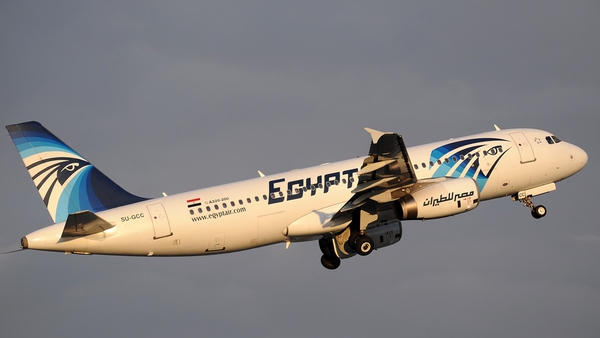A French naval vessel has been sent to the eastern Mediterranean to join the hunt for black boxes from a crashed EgyptAir jet, equipped with three specialist probes from a French company recruited to accelerate the search.
France's BEA air crash investigation agency said French naval survey vessel Laplace had left Corsica earlier yesterday and was heading toward the search zone north of the Egyptian port of Alexandria, where it would begin operations within days.
A week after the Airbus A320 crashed with 66 people onboard, including 30 Egyptians and 15 from France, investigators have no clear picture of its final moments.
Egyptian investigators had said a radio signal had been received from an emergency distress beacon usually located in the rear of the cabin.
This could help narrow the search area for that part of the fuselage, near the tail where "black box" flight recorders are held, to a 5km radius, they said.
However, sources close to the investigation said no new radio signal had been received since the day it crashed.
The emergency locator transmitter sends out a signal that can be picked up by satellites in the international search-and-rescue network when an aircraft is in an accident.
It is separate from the underwater locator beacons, or "pingers", attached to the "black box" flight recorders, which send out acoustic rather than radio signals and are designed to be more easily detected underwater.
John Cox, a former A320 pilot and chief executive of US-based Safety Operating Systems, expressed caution about the reported signal from the sunken wreckage.
"There is a low likelihood the ELT would survive and radio doesn't work as well as acoustic signals underwater," he said.
Search teams are working against the clock to recover the two flight recorders that will offer vital clues on the fate of flight MS804, because the acoustic signals that help locate them in deep water cease transmitting after about 30 days.
The BEA, which is working as part of an Egyptian-led investigation into the crash, said two of its investigators were on board the French naval ship which was carrying equipment from ALSEAMAR, a firm specialising in searching for marine wrecks.
Negotiations are also under way to contract a second firm to search more than one area, French and Egyptian officials said.
ALSEAMAR's equipment includes three of its DETECTOR-6000 systems, designed to pick up black-box pinger signals over distances up to 5km, according to the company's website.
It works by dipping a slender probe into the water to listen for pings and then retrieving it to download the findings.
In 2004, the same company deployed a system of "intelligent buoys" to search for black boxes after a Boeing 737 belonging to Egypt's Flash Air crashed in the Red Sea near Sharm al-Sheikh.
The second firm likely to be involved is Mauritius-based Deep Ocean Search, with which France and Egypt are finalising a contract, according to French diplomatic sources.
That firm was originally involved in the search for missing Malaysian jet MH370, but it and others voiced complaints about the conduct of the search after being rejected when responsibility shifted from Malaysia to Australia.
It was not immediately available for comment.

